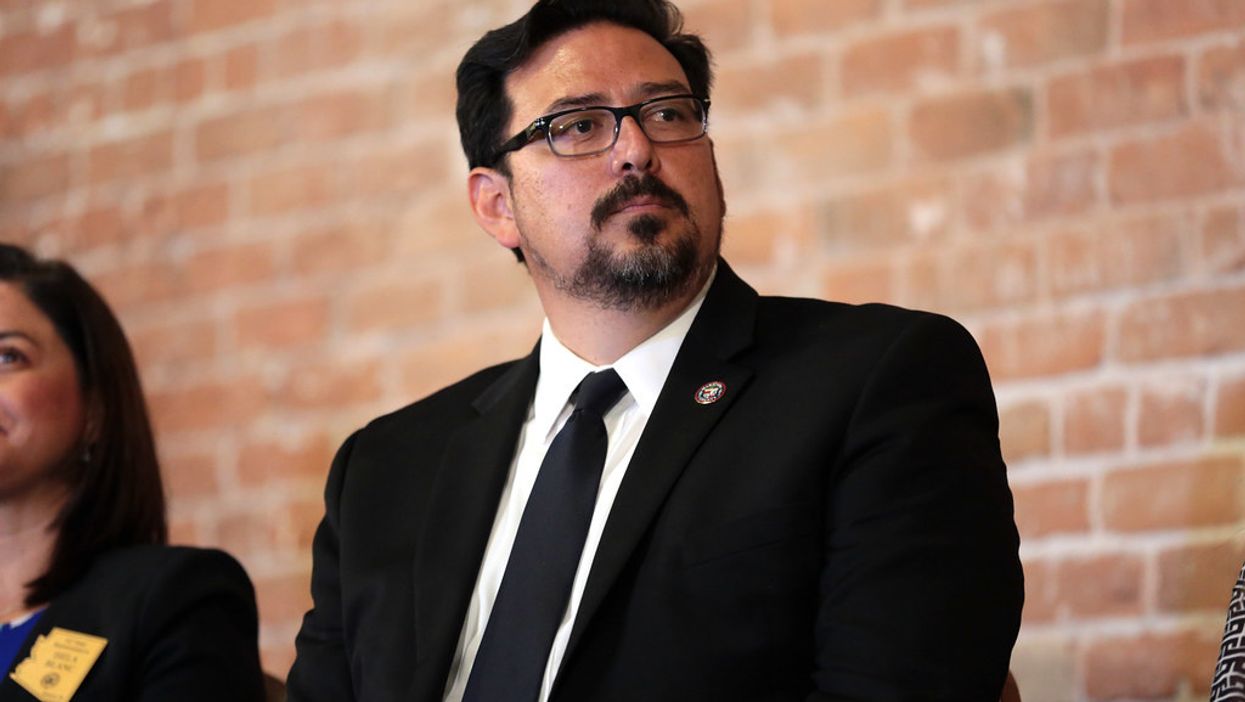Fontes, a Democrat, was first elected in 2016 as the Maricopa County recorder, the chief elections official for Arizona's most populous county.
Due to the coronavirus, many states that have held their presidential primaries on schedule this year experienced a decrease in turnout, chaos and confusion. As we know, the integrity and inclusiveness of our elections depends on a well-run election system — which is exactly why Maricopa County saw an increase in turnout when Arizonans cast their ballots three weeks ago.
On every Election Day, Americans eagerly tune into the news the moment the polls close, expecting decisive conclusions about the future of their country. But these flashy headlines don't often capture the rubber-meets-road work of democracy unfolding on the ground: the science of election administration.
As the head election official for Phoenix and its closest suburbs, I know this better than most. Reading the news makes elections seem simple. However, in a nation as huge and diverse as ours, administering these contests is incredibly complicated. And as we've seen so far this year — from the long Super Tuesday voting lines in Texas and California to the muddled caucus results in Iowa — each jurisdiction faces unique challenges.
That's where election administrators come in.
Sometimes called county recorders, we oversee the nitty-gritty of the election process. They are responsible for ensuring that people are registered to vote and that infrastructure is set up so that, come Election Day, people are able to vote with ease and their votes are properly counted.
Unfortunately, some have instead used their power and position to stop voters from casting ballots. This can be seen in the purges of the Georgia voting rolls by Brian Kemp when he was both secretary of state and the GOP candidate for governor in 2018, and by North Carolina's recent attempt to disenfranchise many in poor and minority communities through a restrictive voter ID law.
Compared with states such as Maine and California, which have gone to great lengths to protect the right to vote, it's clear a person's right and ability to vote can be determined by ZIP code.
Four years ago, I inherited a deeply flawed election system — like too many around the country. After 30 years of mismanagement by my predecessors, the very groups of people most urgently in need of representation in our democracy were often the same ones who couldn't access the ballot box. They need and deserve a seat at the table but have had their voices silenced.
I sought to turn our system around by putting voter outreach and accessibility at the core of our mission. After a series of "community roundtables," we've sought to make impactful changes based on what we learned. We improved poll worker training and sought to make our elections more accessible. We optimized our voting machines to make them more user friendly — not a mass of confusing fine print or flashy, colorful displays. We strengthened no-excuse absentee voting, allowing voting by mail without restriction until Election Day.
We're immensely proud of the strides we've taken to count everyone's vote. And the numbers back us up: We saw a 42 percent turnout increase between the 2014 and 2018 midterms.
To be sure, though, there is always more that we — and other counties across the country — can do to bring more people in.
My team recently proposed shifting entirely to voting by mail, but unfortunately we were turned down. Additionally, we should push for automatic voter registration and same-day registration and oppose overly restrictive voter ID laws and arbitrary voter roll purges. We should support independent redistricting measures that will end partisan gerrymandering. Many of these important reforms are included in HR 1, the For the People Act, which passed the House a year ago but remains stalled in the Senate.
But in order for us to keep improving, the federal government must provide the money for election administrators to do their jobs well. For starters, Congress should fully fund the Election Assistance Commission, the regulatory body that issues accessibility guidelines and approves secure voting machines. It should also provide states robust funding for election security efforts, like upgrading outdated or inaccessible voting equipment. Further, it should increase resources for training registration administrators and other poll workers like the Certified Elections Registration Administrator program so that all election officials are fully equipped to run a smooth process.
Ultimately, elections are about people. They are about giving each of our citizens a path to making themselves heard. It's the job of elections administrators to make sure every voice in our democracy counts. In this time of uncertainty, it's more important than ever to make sure our election systems are well run, secure and can work to the best of their ability.



















